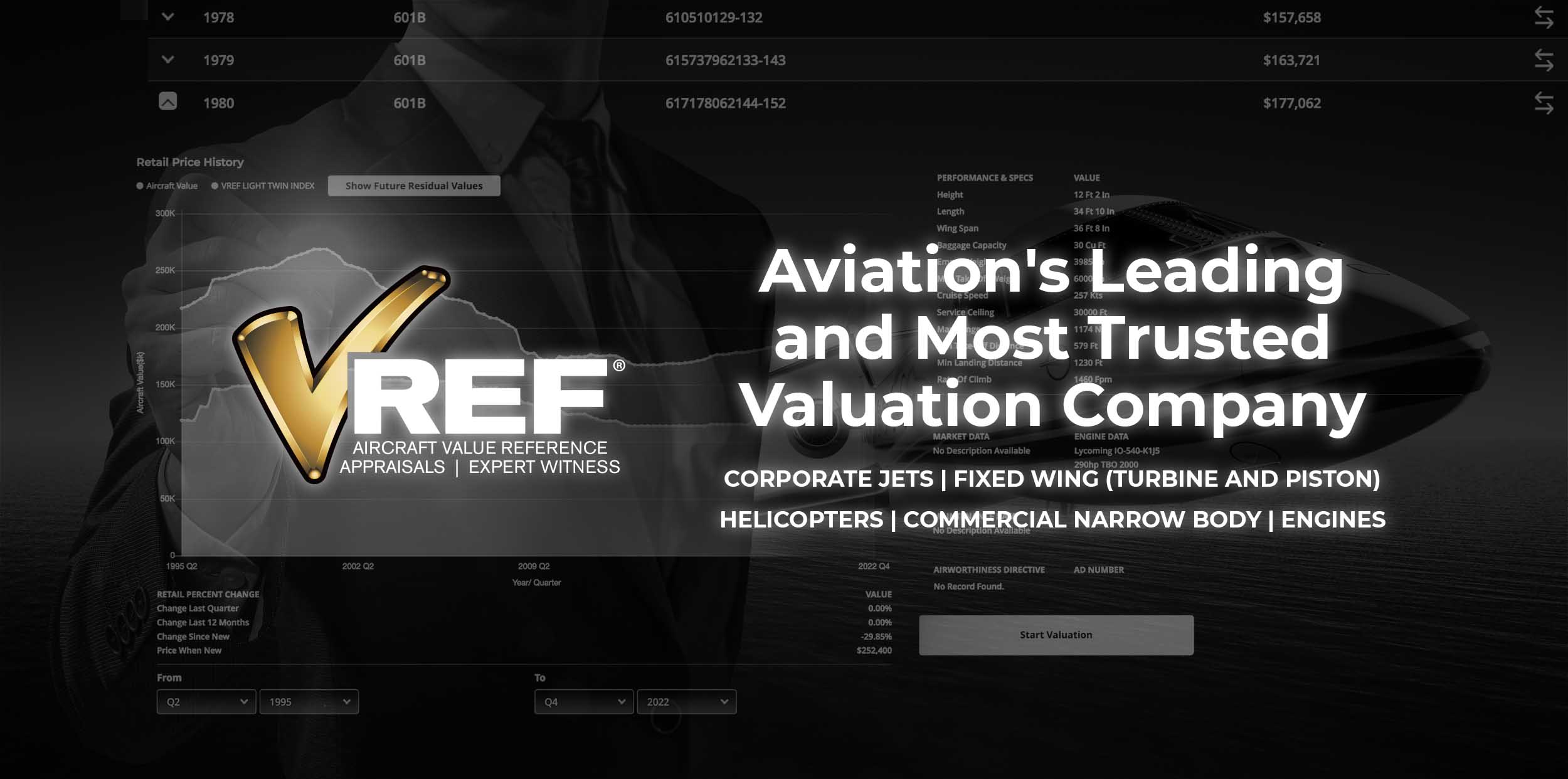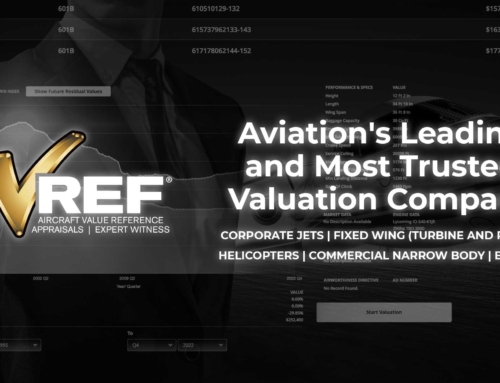By Jason Zilberbrand, ASA, CAA, ISA AM, AOA AM, MRAeS
Most first-time buyers and potential aircraft owners want to know whether money can be made by buying a private jet. After all, who wouldn’t want to fly for free and flip that plane for a profit? So, is it possible to make a profit by buying a private jet?
No, for the most part, you can not make money on a private jet purchase. Just as it is with many specialized asset classes, it takes many years to understand the complexity of buying and selling aircraft to the point where you would not be risking your money. It reminds me of the time I went to buy my first diamond ring. After peppering the diamond broker with questions, I was confident I knew enough to buy a diamond for an investment, hold it long enough and flip it while realizing a healthy gain. Well, that, unfortunately, is not the norm. Unless you are a diamond broker, there is simply no way you will be able to buy a diamond at inventory prices without having substantial experience, resources, or luck.
And if your goal is to turn a profit on an aircraft, we do not recommend buying a private jet.
Let’s dive into the many factors that greatly impact an aircraft’s profitability and some strategies to cover some of the costs associated with owning an aircraft.
3 External Factors That Can Affect Your Aircraft Profits
First, it’s critical to understand the relationship between an aircraft owner and the aircraft. A common misconception is that an aircraft is the same as a beautifully restored and well-maintained car. While both can be significant purchases, they are extremely different in what happens after you sign the dotted line to buy it.
The main difference between other assets and a private jet comes down to maintenance costs and the complex market for pre-owned aircraft. While you can refurbish a car, maintain, and store it within a fairly reasonable budget, you cannot do the same with an aircraft.
Maintenance Can Come as a Surprise
Once again, owning an aircraft is not like owning a car. Potential buyers are often surprised to learn that owning an aircraft is not as simple as placing gas in the tank and traveling worldwide at the drop of a hat.
An aircraft in the most “perfect condition” will require storage fees, maintenance, gas, and the proper amount of utilization. Even an aircraft that has been a hangar queen is an issue because of its low airframe total time.
The problem with buying an aircraft with a low total time is that if an aircraft sits around, which is tantamount to neglect, it requires even more maintenance than if the same aircraft had been flown at a normal amount of annual utilization. Your chances of making a significant return on an aircraft that has been sitting for extended periods of time are slim to none. Of course, if you are an A&P, have a warehouse or hangar full of parts, and can do the wrenching yourself, then ignore the above, but chances of that being the case are also slim to none. Please take my advice, stick to what you know! If the aircraft is a jet, you won’t be turning any wrenches, but you may have some valuable resources; for example, you may have the cheapest guy in town to do your scheduled maintenance, but remember you are not in control of your financial destiny if you cant do it yourself.
It’s expensive to fly, but it’s also expensive not to fly. There’s no win-win situation when it comes to aircraft maintenance with a plane that has been sitting.
Depreciation of an Aircraft
As we’ve mentioned in some of our previous blogs articles, private aircraft purchases are booming since the pandemic, while commercial air travel has taken a hit. While this demand is great for sellers, new buyers should be aware of an aircraft’s depreciation rate before making a purchase.
There are a few factors to consider when thinking about the depreciation of an aircraft, such as:
- Aircraft make and model
- Size of the fleet
- age of the fleet
- technical obsolescence
- Economic conditions
- Operating costs
- Utilization
- Maintenance
A Few Ways To Cover Some of Your Aircraft Costs
If you’re interested in how you can cover some of the costs of owning a private jet, here are some options you should consider.
Charter Your Aircraft Using a Management Company
Yes, you can charter your private jet through a company that can manage the aircraft for you when you are not using it. However, there are a few things you should know regarding the use of a management company.
For starters, you as the owner will still be responsible for paying any maintenance costs, inspection fees, extra improvements, and overall aircraft upkeep. You may also have to pay the management company a recurring payment to handle chartering your aircraft.
Then, the management company may take a percentage of earnings from chartering your aircraft out – reducing your profits. While it is better than nothing at all, it is something to consider.
Finally, your freedom to use your aircraft when you want to might be limited. You may need to discuss your own ability to use the aircraft in great detail with the management company. To make a profit of any kind, your aircraft will need to be available for others to use. This may mean requesting to use your own aircraft depending on availability during popular travel times, such as holidays or weekends.
Lease Your Aircraft
You can set up contracts to lease out your aircraft to a business or even a flight school. You may need help setting this up just right so that the rules and other terms are clearly defined. However, this arrangement may work best for you if you don’t use your aircraft very much. If this is of interest, you need to speak with an aviation attorney and your CPA. There are no redo’s if you do not set up the aircraft’s ownership properly, and you may have just kissed your depreciation goodbye if not done correctly.
Remember, you may need to play an active role in managing your aircraft if you plan on leasing it out on your own without a management company’s help. Again, you will be in charge of any fees, maintenance, inspections, and additional costs associated with the upkeep of your aircraft. This means that you will need to be extremely hands-on and aware of your aircraft’s utilization and what is required to be reliable to travel year-round.
Spend Wisely and Shift Your Perspective
To summarize, it is best to buy a plane because you need to use it – not to purchase it as an investment. Between the numerous costs associated with maintaining and supplying an aircraft and managing the aircraft yourself, it may be difficult to make money by owning one. The best way to utilize a private jet is by renting one – unless you are fully prepared to take on ownership responsibilities. While you won’t make money by investing in an aircraft, you will make more money by using the aircraft as an efficient means of travel. Owning an aircraft is about managing your time, which is the most valuable asset you own. If you want more time, a business aircraft allows that to happen. So while there is no direct profitability, ask the business person using an aircraft how much it was worth when getting home in time to celebrate a birthday or holiday.
What You Need To Do Before Buying a Private Jet
Don’t go in uninformed when deciding to purchase an aircraft. For 27 years, VREF has produced trusted aviation appraisals and valuations produced by Accredited Senior Appraisers who know the industry from the inside out. With thousands of appraisals under our belt, there truly is no better place to turn to when you need all of the information of an aircraft done thoughtfully and without bias. Explore our services here.



